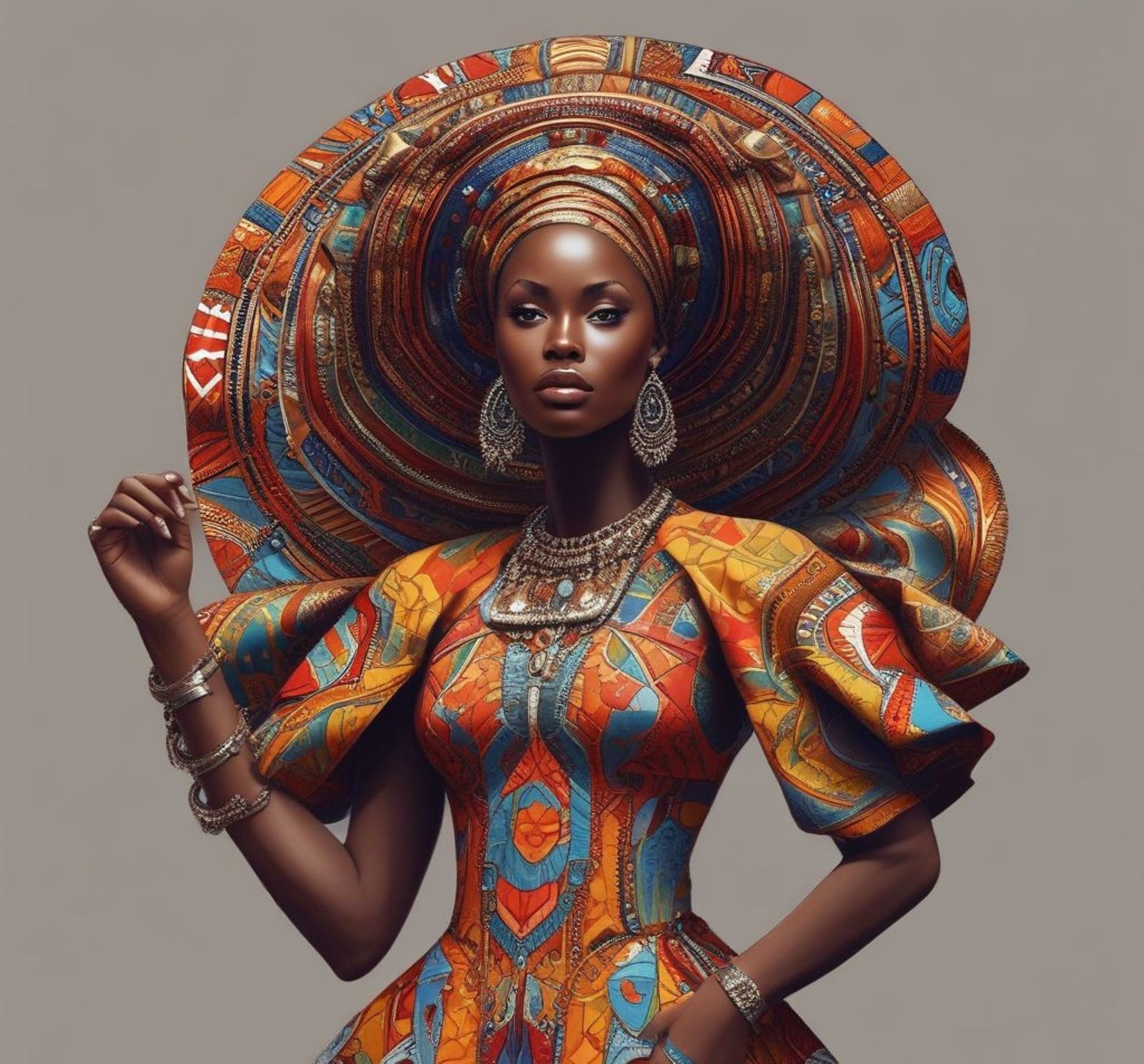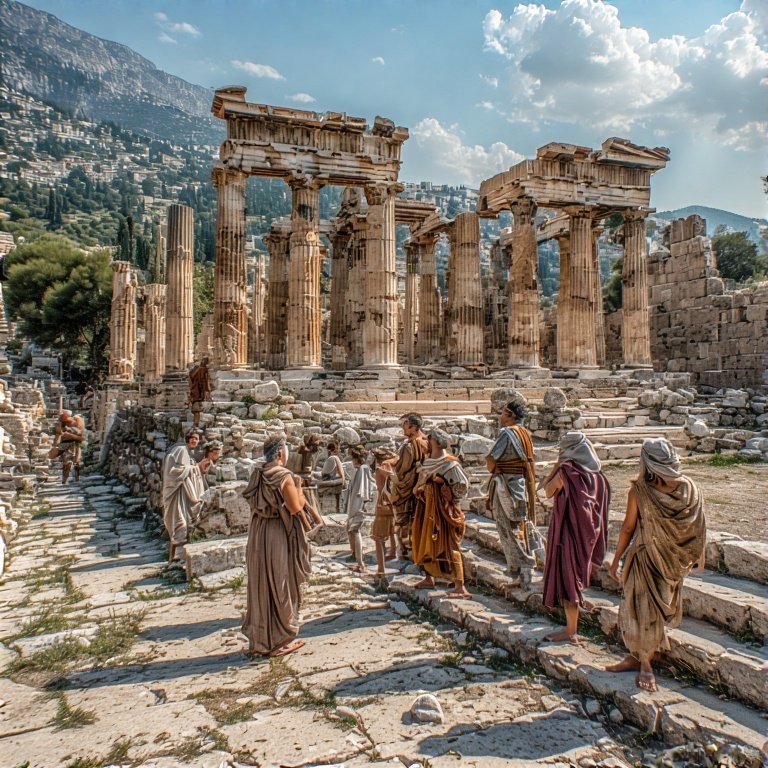Table of content
Introduction
The flow of history often reveals itself as a series of subtle shifts rather than cataclysmic upheavals. Most changes occur gradually, evolving with the passage of time and the interaction of various cultures and ideologies. It is the keen observer—those possessing wisdom and attentiveness—who appreciate the nuances and incremental transformations that shape societies. In this editorial, we will particularly concern ourselves with the collapse of the Hellenistic political system, which marked a significant transition towards the dominance of Rome, presenting a fertile ground for inquiry into the intersection of ideologies. This period, rich in philosophical and cultural discourse, prompts a critical examination of whether Hellenistic thought infiltrated early Christian teachings and the broader implications of such an exchange.

The Greek Era
Hellenism, derived from the Greek word ‘Hellenismos,’ refers to the culture, ideals, and civilization of ancient Greece. It encompasses a broad range of aspects, including philosophy, art, religion, and the social and political organization of Greek city-states, which flourished from approximately the 8th century BCE to the end of antiquity due to theological and Religious Changes
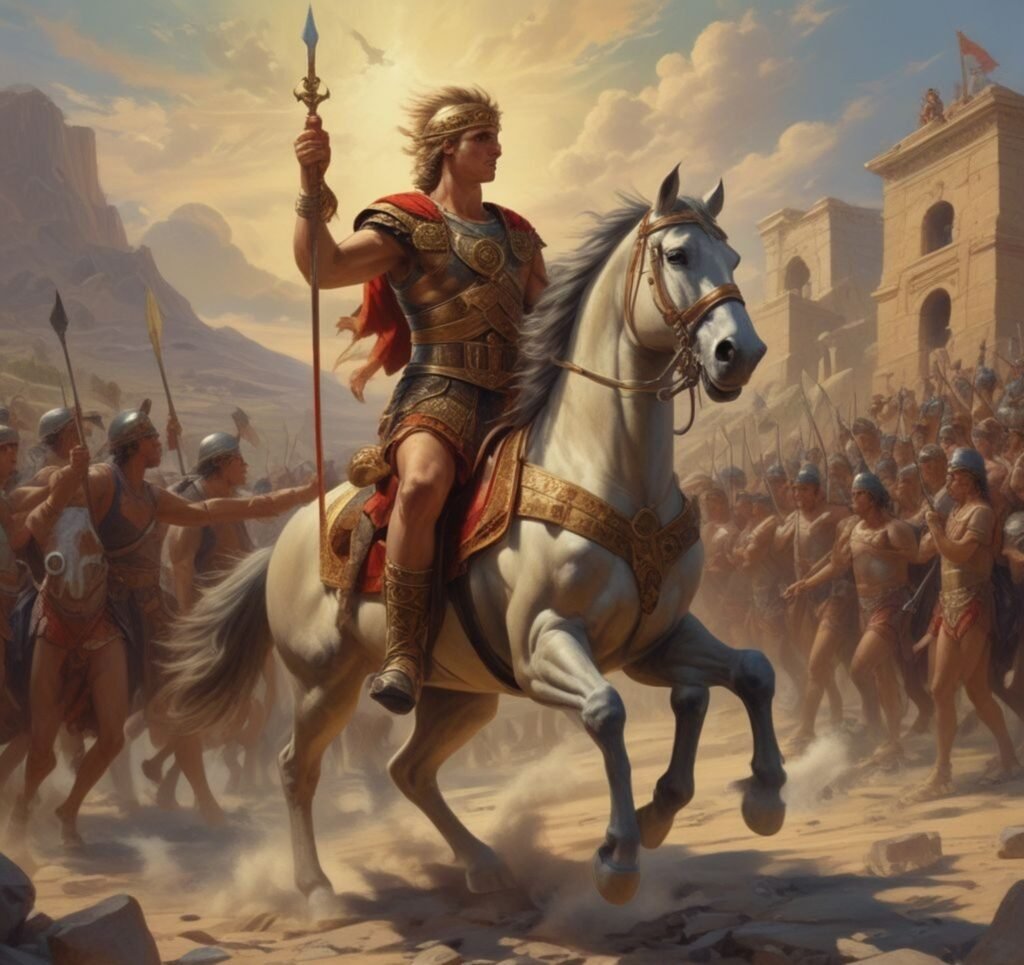
Conquests of Alexander The Great
The roots of Hellenism can be traced back to the classical period of ancient Greece, characterized by European advancements in arts, science, and philosophy. This era birthed influential figures such as Socrates, Plato, and Aristotle, whose thoughts laid the groundwork for Western philosophical thought. Hellenism thrived during the Hellenistic period, following the conquests of Alexander the Great, which spread Greek culture across vast regions, amalgamating local practices with Greek ideals.
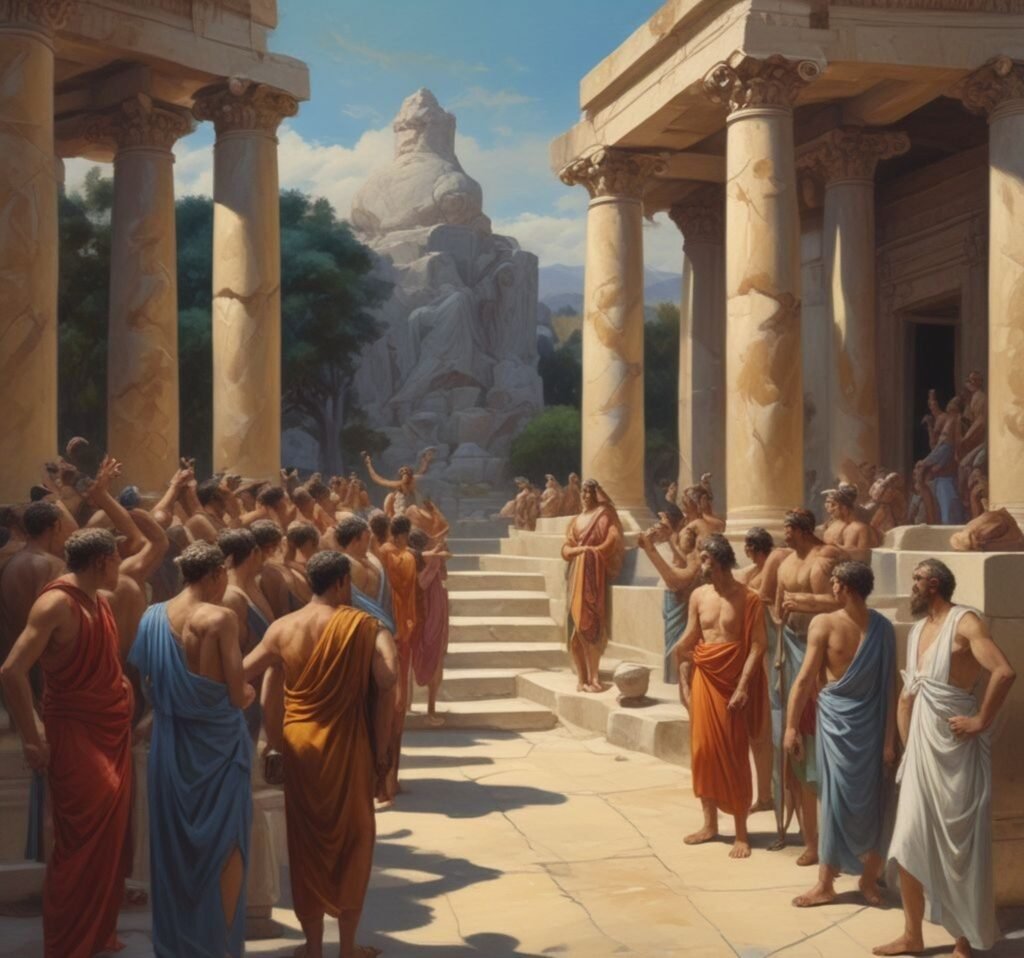
Ancient Greeks Worship of Gods And Goddesses
One of the most prominent aspects of Hellenism is its polytheistic religion. Ancient Greeks worshiped a pantheon of gods and goddesses, each representing different facets of life, from mythology to nature. Major deities like Zeus, Athena, and Apollo shaped religious practices and festivals, such as the Olympic Games, which celebrated physical prowess and honor. Ancient Hellenistic practices in Greece evolved in various forms. Later, the establishment of Orthodoxy as the predominant religion integrated some elements of Hellenistic thought; for example, the celebration of local saints often reflects the ancient customs of honoring deities. Festivals that once celebrated gods now honor Christian figures, blending ancient traditions with modern spirituality.
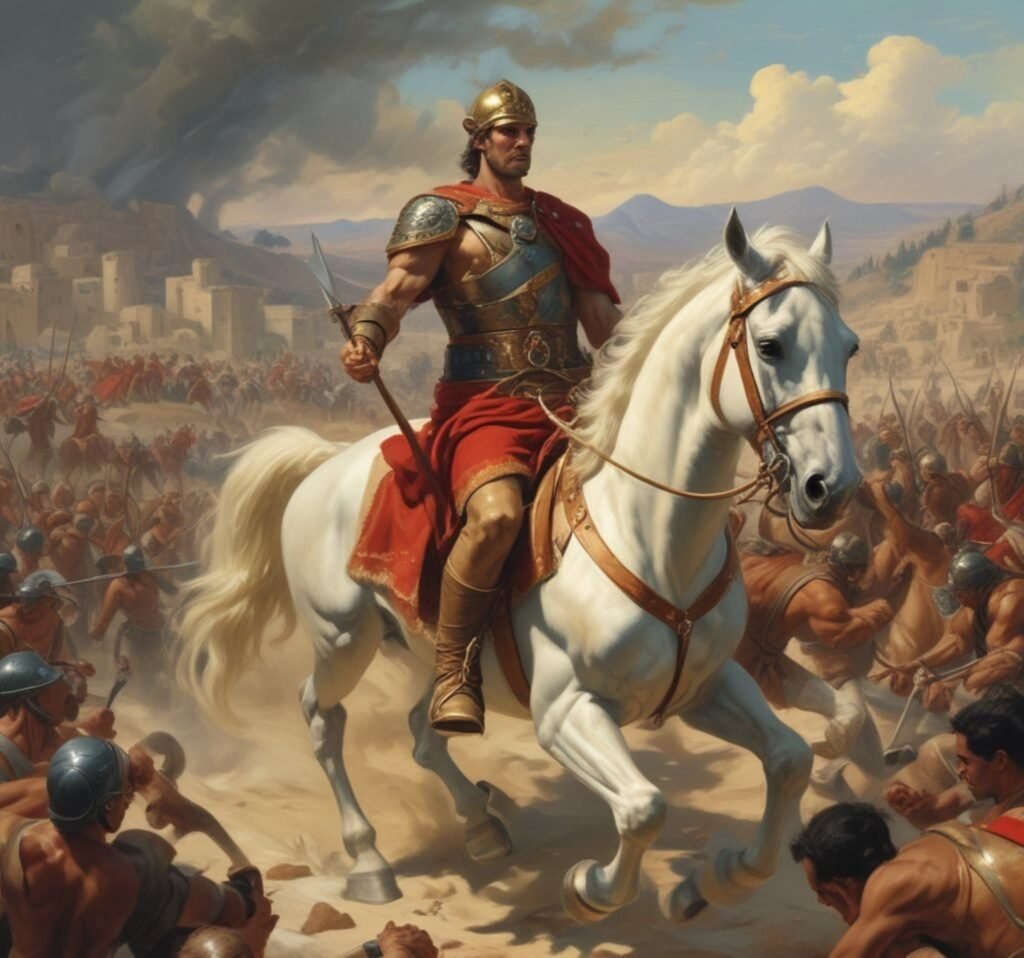
Spread of Hellenism Through War
Hellenism, however, did not remain confined to Greece. The spread of Hellenism through war is a fascinating chapter in the annals of history, demonstrating how cultural transformation can accompany military conquest. Hellenism, characterized by the spread of Greek culture, language, and ideas,was significantly propelled by the conquests of Alexander the Great, whose campaigns transformed the cultural landscape of the ancient world. Alexander, born in 356 BC, was a student of Aristotle and inherited a powerful kingdom from his father, Philip II of Macedon. However, it was his military ambitions that would lead to the expansive spread of Hellenistic culture. Between 334 and 323 BC. Alexander, embarked on a series of military campaigns, stretching from Greece to Egypt and into the heart of Persia.
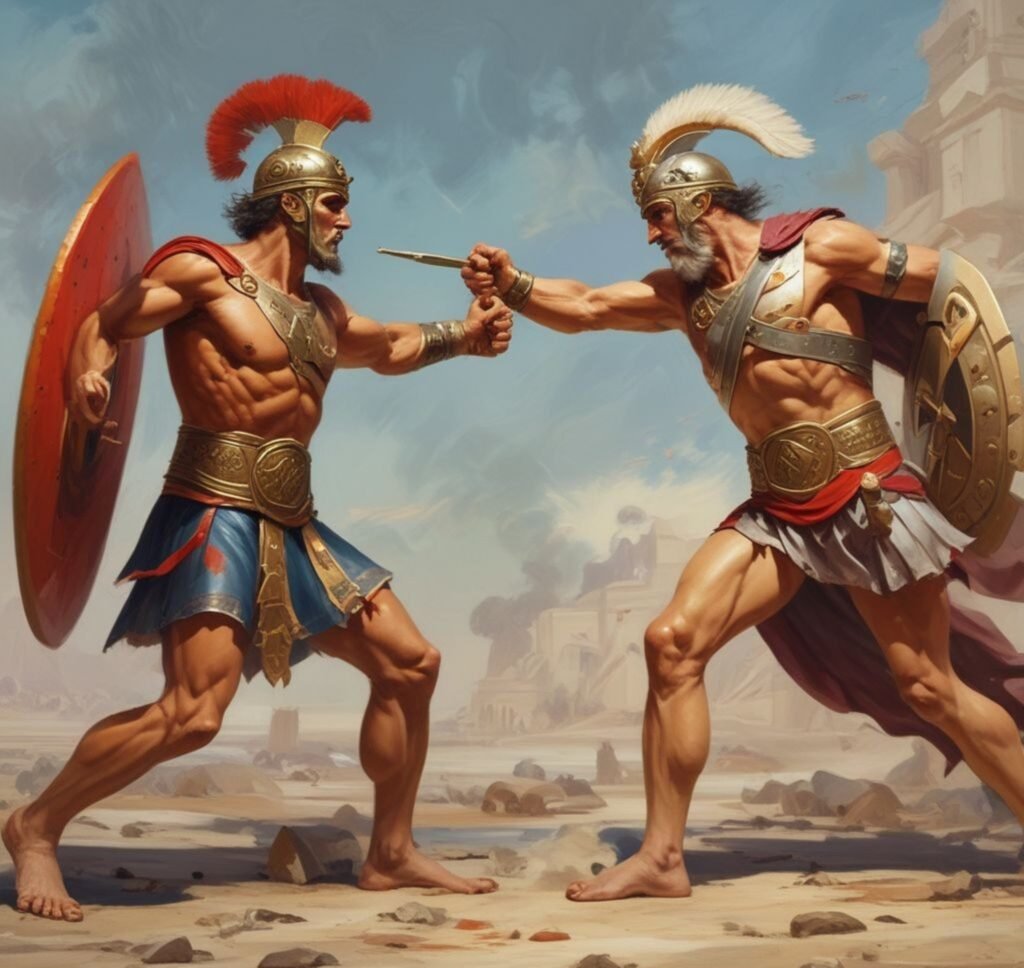
Rome Conquers Greece
The conquest of Greece by the Romans, which began in earnest in the mid-2nd century BCE, was a series of military and political maneuvers that ultimately led to the establishment of Roman dominance over the Greek world. Despite the overwhelming Roman military power and the eventual political annexation of Greece as a province of the Roman Republic, the conquest did not completely eradicate Hellenism—the rich cultural, philosophical, and artistic heritage of ancient Greece. Instead, the relationship between Rome and Greece resulted in a complex intermingling of cultures, preserving and promoting many aspects of Hellenism even as Rome asserted its control. Simultaneously, philosophical schools continued to thrive in the Roman world; the Stoicism originated in Greece remained influential among Roman elites, championed by figures such as Seneca and Marcus Aurelius. The philosophical and ethical teachings that emerged from Hellenistic thought provided a foundation for Roman moral discourse and personal conduct.
The Hellenistic influence persisted even as the Roman Empire transformed into the Byzantine Empire. As Rome’s power waned and the eastern provinces gained prominence, Mediterranean culture would continue to reflect Greek philosophical ideals, much to the chagrin of the emerging Christian orthodoxy that sought to distinguish itself from pagan traditions. Yet, Hellenism, in many facets, did not simply disappear; it adapted and evolved, shaping the emerging cultural landscape of the Byzantine era. The question arises: how did these Hellenistic ideologies shape and influence the early formation of Christian teachings?

The Spread of Christian Doctrine
The political landscape of the Hellenistic period further contributed to the propagation of Christianity. The Roman Empire, which arose in the wake of Hellenistic influence, played a crucial role in the spread of Christian doctrine. The extensive network of roads and trade routes established by the Romans facilitated travel and communication across vast distances. As apostles like Paul traversed these routes to spread their teachings, the political unity of the empire helped to unify and stabilize the growing Christian community. Despite facing persecution, early Christians relied on the organizational structures reminiscent of Hellenistic civic life to build their communities. The concept of communal worship, already developed in Hellenistic society, later found expression in the formation of congregations that reflected both local traditions and the universal elements of Christian belief. The ecclesiastical hierarchy that emerged in Christian practice drew on models from both Hellenistic and Roman governance, helping to institutionalize and spread Christianity effectively.
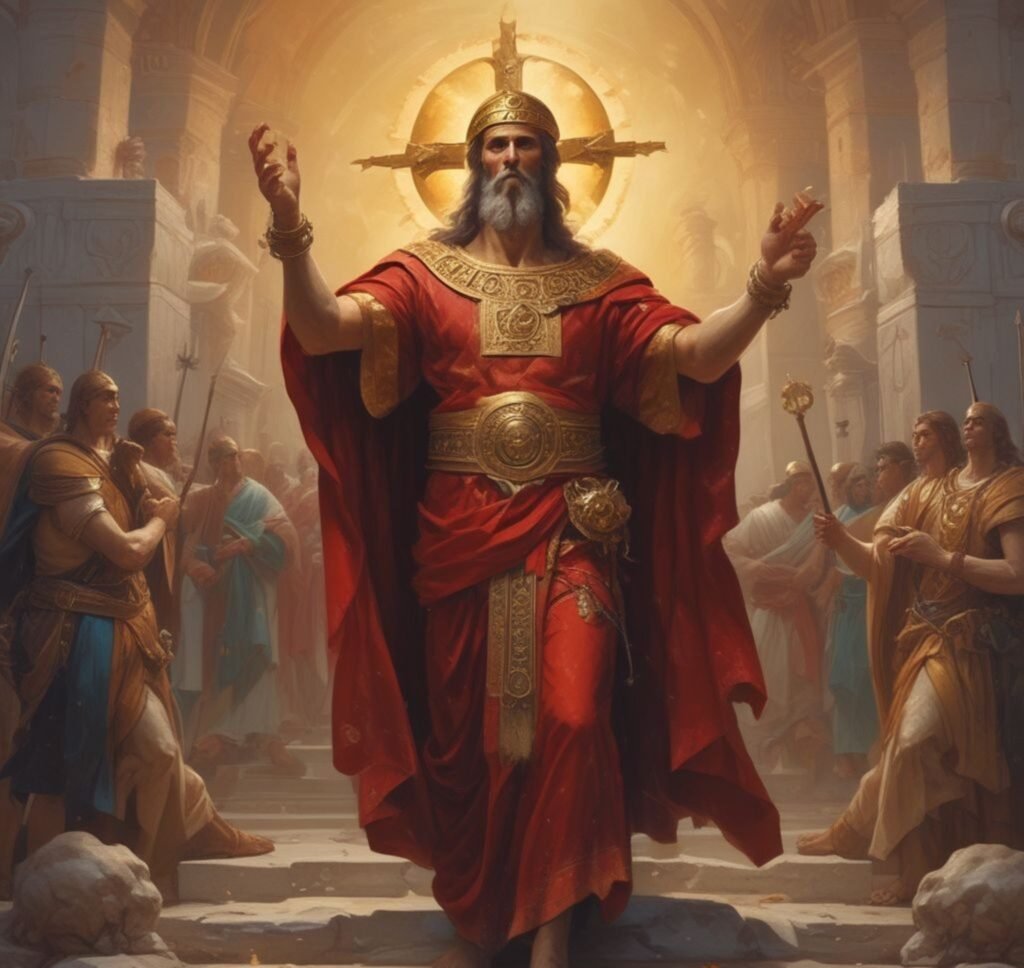
Interchange Between Hellenistic And Early Christianity Thought
The process of cultural interchange between Hellenistic thought and early Christianity did not occur in isolation. It was facilitated by the geographical and political landscape of the time. As the Roman Empire expanded into previously Hellenistic regions, the movement of peoples, ideas, and texts became a norm. The early Christian community, which initially emerged within a Hellenistic Jewish context, found itself not only within a milieu steeped in Greek philosophy but also confronting a secular Greco-Roman world that exercised substantial influence over its cultural and intellectual life.
Many of the early Church Fathers, such as Augustine of Hippo and Clement of Alexandria, explicitly engaged with Hellenistic philosophies, often seeking to integrate and reconcile these ideas with Christian doctrine. The influences of Hellenism on early Christianity are manifold and multifaceted. From philosophical inquiries to artistic representations and social structures, the syncretic nature of these two cultural spheres enabled Christianity to flourish in a diverse world. As it evolved, Christianity not only retained elements of Hellenistic thought but also transformed them, creating a new religious paradigm that would shape the course of Western history. Understanding the interplay between Hellenism and Christianity thus enriches our appreciation of how ancient ideas continue to inform modern beliefs and practices.
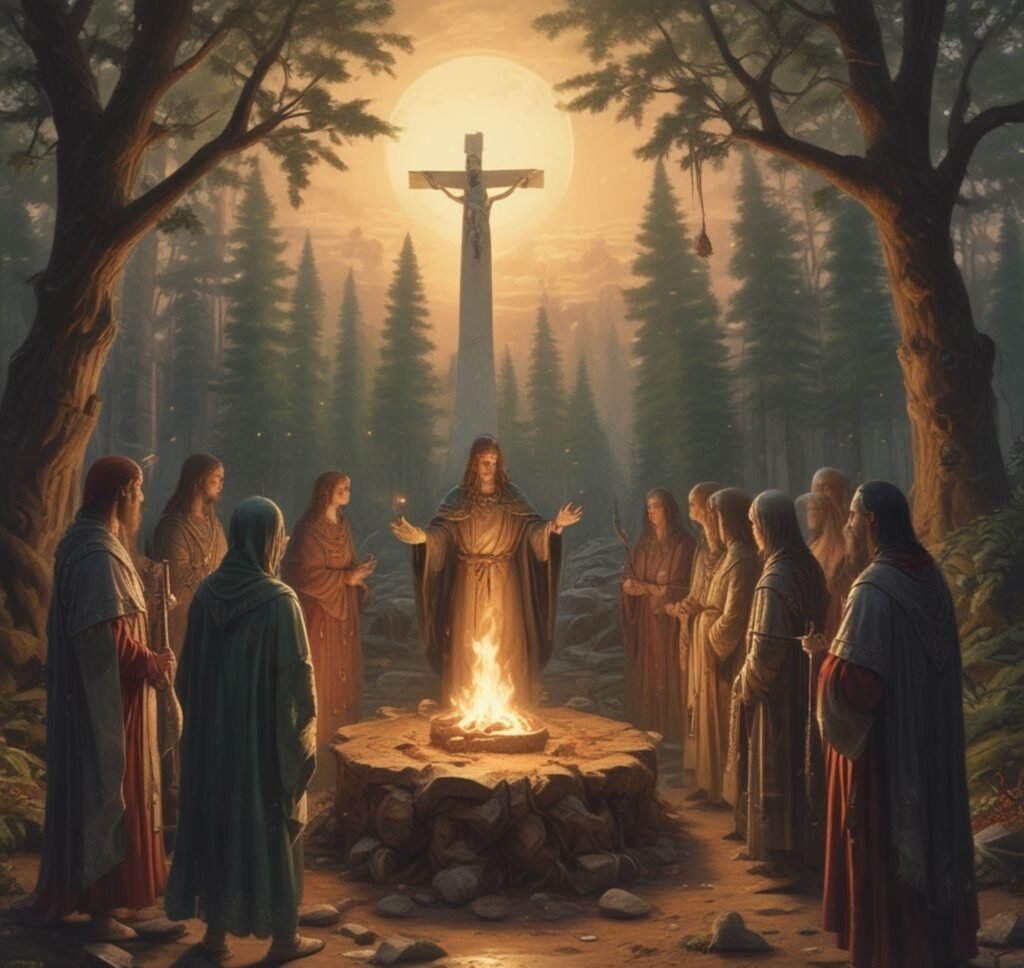
Christianity And Rituals of Paganism
The Hellenistic period, which followed the conquests of Alexander the Great, marked a significant cultural and religious transformation in the ancient Mediterranean world. During this time, pagan practices flourished, particularly in the realms of philosophy, art, and religion. As the Roman Empire emerged and eventually adopted Christianity, a notable syncretism occurred, where several Hellenistic pagan practices were absorbed and transformed within the Christian tradition. One of the most prominent features of Hellenistic paganism was its polytheistic nature, with a pantheon of gods and goddesses who were worshiped through various rites and rituals. This vibrant tapestry of beliefs not only shaped individual spirituality but also influenced societal norms and practices. The rituals, often focused on the cycles of nature, fertility, and the afterlife, found their way into early Christian practices, albeit reinterpreted through a monotheistic lens.
The transition from pagan practices to Christian rituals was not a uniform process. Various local customs and traditions were intertwined with Christianity as it spread across the Roman Empire. This regional adaptation enriched Christian practices, allowing them to resonate with diverse populations while preserving significant elements of their cultural heritage. The celebration of Christmas, for instance, is said to have been influenced by pagan winter solstice celebrations. The timing of the holiday, with its themes of light returning to the world, can be seen as a strategic alignment with existing pagan festivities.

Christians celebration of the Eucharist
Ritualistic practices such as festivals, communal meals, and processions were central to Hellenistic pagan worship. Christians adopted certain elements of these rituals, modifying them to fit their theological framework. For instance, the early Christians celebrated the Eucharist, which can be likened to the communal feasting of pagan festivals that honored deities. The notion of breaking bread and sharing wine as a spiritual communion mirrors the communal aspect found in many pagan practices aimed at fostering a sense of community and connection with the divine.

The Concept of Afterlife
Another critical aspect of Hellenistic paganism was the understanding of the afterlife. The Greeks and Romans had diverse beliefs regarding what happened after death, often engaging in rituals intended to secure a favorable journey for the deceased. Elements of this belief system were reinterpreted in Christianity, where concepts of heaven, hell, and resurrection became foundational. The imagery of life after death in early Christian texts often intersected with earlier pagan beliefs, as Christians sought to provide comfort and hope in the face of mortality. Moreover, Hellenistic philosophy, particularly the works of Plato and the Stoics, contributed intellectual frameworks that shaped early Christian thought. Concepts such as the immortality of the soul and ethical living influenced Christian teachings, allowing for a more philosophical approach to faith that resonated with educated classes accustomed to Hellenistic thought.
The transition from pagan practices to Christian rituals was not a uniform process. Various local customs and traditions were intertwined with Christianity as it spread across the Roman Empire. This regional adaptation enriched Christian practices, allowing them to resonate with diverse populations while preserving significant elements of their cultural heritage. The celebration of Christmas, for instance, is said to have been influenced by pagan winter solstice celebrations. The timing of the holiday, with its themes of light returning to the world, can be seen as a strategic alignment with existing pagan festivities.
As Christianity became the dominant religion of the Roman Empire, the church often engaged in a complex dialogue with the remnants of Hellenistic paganism. Rather than outright condemnation, the church sometimes assimilated these practices to ease the transition for converts. This phenomenon is evident in the work of early church fathers who sought to reconcile the rich philosophical and moral teachings of Hellenism with Christian doctrine.
In summary, the Hellenistic pagan practices did not simply disappear with the advent of Christianity; rather, they were transformed and integrated into the new religious order. These influences manifested in rituals, beliefs about the afterlife, philosophical discourse, and artistic expression. The legacy of Hellenistic paganism can be observed in the early development of Christianity, showcasing how cultures evolve and how faith traditions often intersect, adapt, and reshape each other in the continuum of human history.
The question of whether the adoption of Hellenistic pagan practices into early Christianity is part of the concept of Christ is one that requires careful examination. This inquiry is not merely an exploration of historical events or theological doctrines; rather, it delves into the essence of belief systems and cultural intersections that shaped the formative years of Christianity.
This leads us to a critical question: if pagan practices were repackaged within Christianity, can the condemnation of paganism be viewed as mere religious propaganda? This perspective argues that early Christian leaders, perhaps feeling threatened by the popular and established pagan religions, sought to delegitimize these practices by labeling them as evil or heathen. By vilifying paganism, Christianity could elevate itself in the moral and religious hierarchy, presenting its teachings as the sole path to truth and salvation. For instance, the celebration of Christmas on December 25th coincides with the pagan festival of Saturnalia and the winter solstice celebrations, marking the day when the days begin to lengthen—a symbol of rebirth. Such synchronous dates likely served to provide continuity and comfort to converts who were accustomed to these existing traditions, effectively allowing them to weave their cultural practices into their new faith.
Again, the question of whether or not Jesus was actually born on December 25th has been a long-standing topic of discussion among scholars and theologians. Historical evidence suggests that the exact date of Christ’s birth is not definitively known, and certain Biblical references even imply that it could have been during a different time of year, possibly in the spring or autumn. Nevertheless, the choice of December 25th was likely influenced by various factors, including pre-existing pagan winter solstice celebrations, which marked the return of longer days and the hope of renewal.
From the book: The Mission and Expansion of Christianity in The First Three Centuries by Adolf Harnack











